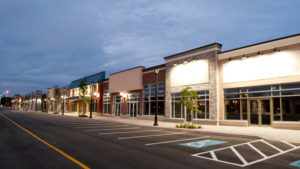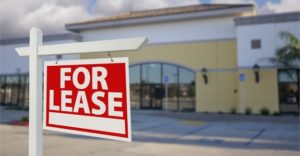You are an investor, and you have been considering getting into the commercial real estate game. You have already made money on the residential side of real estate, but you’re interested in expanding your investing scope to more lucrative opportunities. While this kind of real estate venture can generate lots of cash flow, there are some issues you should be aware of before jumping in with both feet.
Running the Numbers

Image Credit: World Property Journal
When purchasing a commercial building or small stripmall-style property, you will want to take considerable time to go over the numbers of such a purchase. Will the cost of the property really justify the monthly generated income stream. Equally important, how long will it take to pay the property off—even if there are already renters paying an established monthly income rate. You have to know if this commercial venture is really going to be worth the investment.
Dealing with the County
Depending on what kind of commercial real estate you are investing in, there may be hidden licensing fees and county compliance issues that you must address along the way. Sometimes these issues are a matter of paying a fee to get the ball rolling. Other times, there are inspections that must be carried out, and you may even need permission from the county if laws have changed prior to you becoming the owner. There’s also certain taxes associated with buying and selling investment properties like commercial locations or rental properties. There are ways of getting around the taxes, but not so much the inspections. Getting in touch with the county and knowing this information ahead of time is key.
When You Are the Landlord

Image Credit: BizCommunity
Being a landlord for commercial real estate can be a bit more complicated than being a landlord in other real estate ventures. This time around, you are renting to restaurants, retail stores, and a variety of other shop owners. The negotiations and contracts for this kind of real estate process are more entangling, and they require developing a more amicable relationship to ensure tenants remain long-term, loyal rent payers.
Location Considerations

Image credit: Tropitone
When it comes to sinking a huge investment into commercial property, you must make location a primary concern. Whether you are using a building for your own purposes or renting suites out to tenant businesses, you must make sure there is adequate foot traffic and visibility so that you will attract customers and clients. Otherwise, your location could kill any businesses trying to operate out of your commercial property—even your own. You’ll also want to choose a location that compliments the look and function of your property. For example, if you are investing in a hotel and spa, then you’ll want to ensure that your outdoor scenery supports a relaxing experience.
Insurance Needs

Image credit: St. Louis Corporate Housing
Insurance is always a factor with any type of investment in commercial property. You would not want to risk owning such huge assets without having insurance to cover them. Before you purchase commercial property, you will want to be certain of the insurance ramifications that such a purchase entails. You will need liability insurance, flood insurance, in certain cases, and insurance to mitigate the costs associated with other types of potential damage to your commercial investment.
Going commercial with your real estate interests can turn into a huge investment opportunity. There is a lot of money to be made as the owner of commercial properties. The business applications are virtually endless, and so is the income potential.
When you’re ready to start the construction process, contact us at Pride One Construction to schedule a consultation.
Resources:
httpss://www.insureon.com/blog/post/2014/04/01/save-on-property-insurance.aspx
httpss://www.nolo.com/legal-encyclopedia/pros-cons-investing-commercial-real-estate.html
httpss://www.investopedia.com/articles/mortgages-real-estate/09/tips-commercial-real-estate.asp

Recent Comments